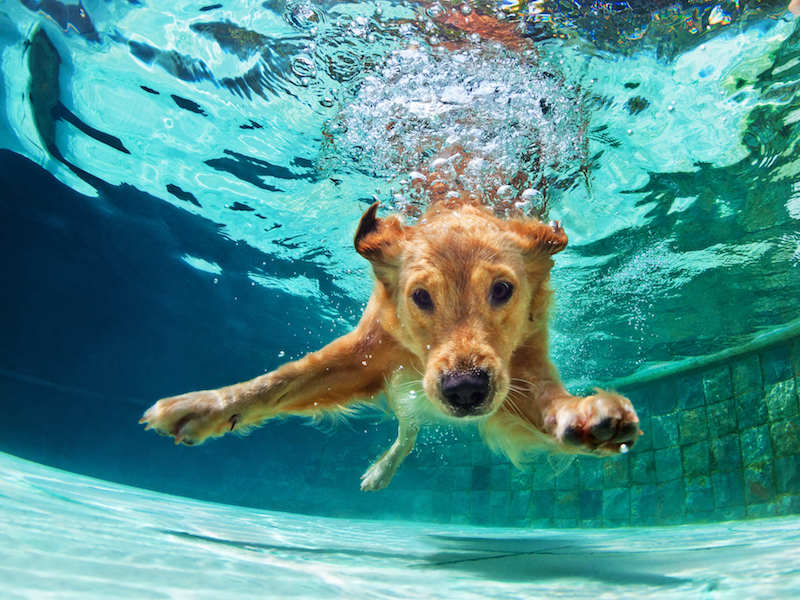Is Humidity Causing Harm Inside Your Hearing Aids?

There are many factors which can affect the circuitry of your hearing aids. In fact, you could call moisture kryptonite for hearing aids. Even if you already know that and take care to protect your investment from the shower, pool, or a good face washing, more than likely you are missing the most common cause of water damage in hearing aids: humidity.
Moisture that you can’t see has the highest chance of causing permanent damage. It’s time to understand more about why humidity is a negative thing for hearing aids.
What is Humidity?
Even though the word humidity is very common, what does it really mean? PBS defines humidity as water molecules in the air. When displayed as a percentage, for example, the relative humidity is 40 percent today, it refers to the amount of water vapor in the air compared to what air could hold. The larger the percentage, the wetter everything feels.
People are very sensitive to humidity because sweat is the most efficient way to cool down the body. When you sweat it evaporates into the air, but that doesn’t happen as quickly when the humidity level is very high. Moisture and electronics don’t mix well and that includes hearing aids.
As A General Rule Electronic Devices Have a Hard Time Coping With Humid Weather
Strangely enough, electronic devices are not just sensitive to high humidity but low levels as well. When it’s too moist, the delicate electronics will collect condensation. When it’s too dry things become more brittle.
Internal electronics are the reason your hearing aids work. Newer digital hearing aids use a sophisticated audio processing chip to manage noise. Because of this, you get awesome features like:
- Noise reduction
- Anti-feedback
- Targeted listening programs
- Digital sound streaming
High humidity causes moisture to accumulate inside the hearing aids damaging that chip. Batteries get destroyed and you get corrosion of elements inside of the case. It’s the same as dropping your hearing aid in a pool of water.
Keeping Humidity Under Control
If you are looking at hearing aids, look for products that are water-resistant. This feature will give you some protection against humidity and wet weather, but you still can’t go swimming with them in.
If you live in an area prone to high humidity, consider getting a room or house dehumidifier to lessen water vapor indoors. It’s an investment that will benefit you and your family in many ways and protect other electronic devices like that costly TV you got for Christmas. Dust mites, mildew, and mold thrive in moist environments so a dehumidifier will improve the quality of breathing as well. However, protecting your hearing aid more completely will require additional thinking. You will need to take other steps at the same time.
Consider buying a dehumidifier designed especially for hearing aids. There is one out there for every budget. Silica gel crystals in a drying kit are used to protect electronics. You put the device in the dehumidifier for a couple of hours to eliminate moisture. There are also storage containers that dry hearing aids out each night as you sleep. In a pinch, you could use a bag of uncooked rice to remove moisture.
Get in the habit of opening the battery compartment every time you store your hearing aids. By pulling that door open before you put the hearing aid down, you expose the batteries and other elements to the air, allowing any condensation built up to evaporate naturally. Don’t just do this in the summer, do it all year round.
A cool dry place is the ideal for storage. On the table in the sun, in the glove compartment, or in a hot room are examples of where not to store your hearing aids.
Thinking Past Humidity
Air vapor is not the only moisture that can damage hearing aids. Take precautions to protect them from other kinds of wet such as:
- Make sure all lotion or sunscreen is fully absorbed before touching your hearing aids or putting them in your ears.
- Find a safe place to store your hearing aids if headed for the pool or beach.
- When exercising wear a sweatband. It’s a good practice whether you wear your hearing aids when you workout or not. Later that sweat will cause problems.
- Check surfaces before you put your hearing aid down. A glass or coffee cup can leave moisture behind.
Your hearing aids are a valuable asset, so treat them that way. Keep in mind how moisture can damage your hearing aids and make sure to prevent water from getting in them. If your hearing aid already has water damage make an appointment for service with a hearing aid specialist.